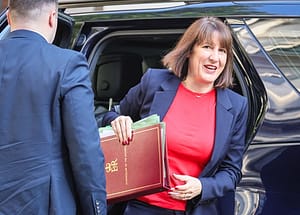Following a tumultuous week for the UK foreign exchange (FX) market in the wake of the Government’s mini budget announcement, London-based FX company Lumon, which specialises in international payments and foreign exchange risk management for private and corporate clients, is reporting a 30% increase in clients ‘forward buying’ currency.
This involves utilising long-term contracts that lock currency conversions away at today’s rate for payments in the future.
The rapid futureproofing pursued by both private and corporate clients comes after the British pound plummeted to record low levels earlier this week as a direct response to the planned tax cuts and increased public borrowing announced by Chancellor of the Exchequer Kwasi Kwarteng.
Analysts are predicting that the pound could reach parity with the US dollar soon and the month-on-month drop of the pound is very likely to be the biggest since after the Lehman Brothers collapsed in the fall of 2008.
Jonathan Watson, Associate Director at Lumon, which supports both private and corporate clients told LondonLovesBusiness.com, “When it comes to analysing the long-term confidence in a currency, few things are as accurate as observing the actual behaviour of FX traders.
“They monitor developments very closely and have tools at their disposal that help them make risk minimising decisions quickly. This is why the uptick in forward buying should be seen as a worrying sign for the British economy.
“For Sterling holders buying a foreign currency, this spike indicates a fear that the pound could weaken further and a wish to protect themselves from that possibility.
“For sterling buyers, holding a foreign currency, it is about locking in the improvements and ensuring they do not miss out on the extra cash they are generating from a weaker pound. It all stems from a desire to have certainty in a clearly uncertain market.
“When considering an overseas property purchase or sale, or looking to determine your future business running costs, understanding your FX rate is crucial to understanding your costs.
“The last thing clients holding the pound need are the kind of movements lower sterling has taken as it makes everything more expensive. On the other hand, foreign currency sellers looking to buy the pound can capitalise on these movements to ensure they are maximising their position.”






Leave a Comment